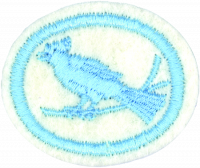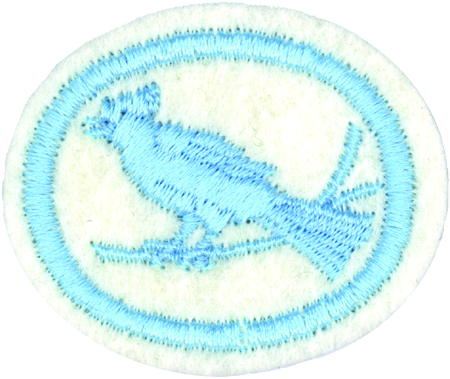Jomegat bot (talk | contribs) (Bot: Automated import of articles *** existing text overwritten ***) |
m |
||
| Line 9: | Line 9: | ||
|master2=Zoology | |master2=Zoology | ||
|master_group2=fauna | |master_group2=fauna | ||
| − | |||
}} | }} | ||
Revision as of 19:10, 13 April 2021
Overview
Birds are among the most intelligent beings of God's creation. Learn to identify them by sight and by sound. Set up a bird feeder so you can observe them close up, learn their habits, and get familiar with their personalities! We don't call them our "feathered friends" for nothing!
|
Investiture Achievement Connection: This Honor is related to the Investiture Achievement requirements for FRIEND Nature Study which require to set up a feeding station and report on the bird visitors observed for a period of seven days as called for in Requirement 7a of this Honor. This Honor is a popular choice for the required Level 1 Nature Honor required of TRAIL FRIENDS. |
The Challenging Part
The most challenging requirement of this honor is probably this:
7. Do one of the following:
- a. Set up a feeding station and report on the bird visitors observed for a period of seven days.
- b. Find a bird's nest, during the nesting season, identify the species of bird that built it, describe the nest in detail, observe the nest for five days, and report what happened at the nest on each of the days.
- c. In the Western Hemisphere: Maintain a hummingbird feeder for 2 months.
- i. What does man-made nectar consist of?
- ii. Why shouldn't you use food coloring or honey?
- iii. When should the feeder fluid be changed?
- iv. How should the feeder be cared for?
- d. In other areas of the world: Select at least three different habitats in your area and make comparative bird lists of them indicating the differences in birds expected and found.
- Pages using DynamicPageList3 parser function
- AY Honors/Honors with an Advanced Option
- Has insignia image
- AY Honors/Naturalist Master Award/Fauna
- AY Honors/Zoology Master Award/fauna
- AY Honors/HonorLanding
- AY Honor Categories/Nature
- AY Honors/Nature
- AY Honors/Introduced in 1928
- AY Honors/Skill Level 1
- AY Honors/Approved by General Conference
- Uses HonorLanding Template
- AY Honors/IAConnection


